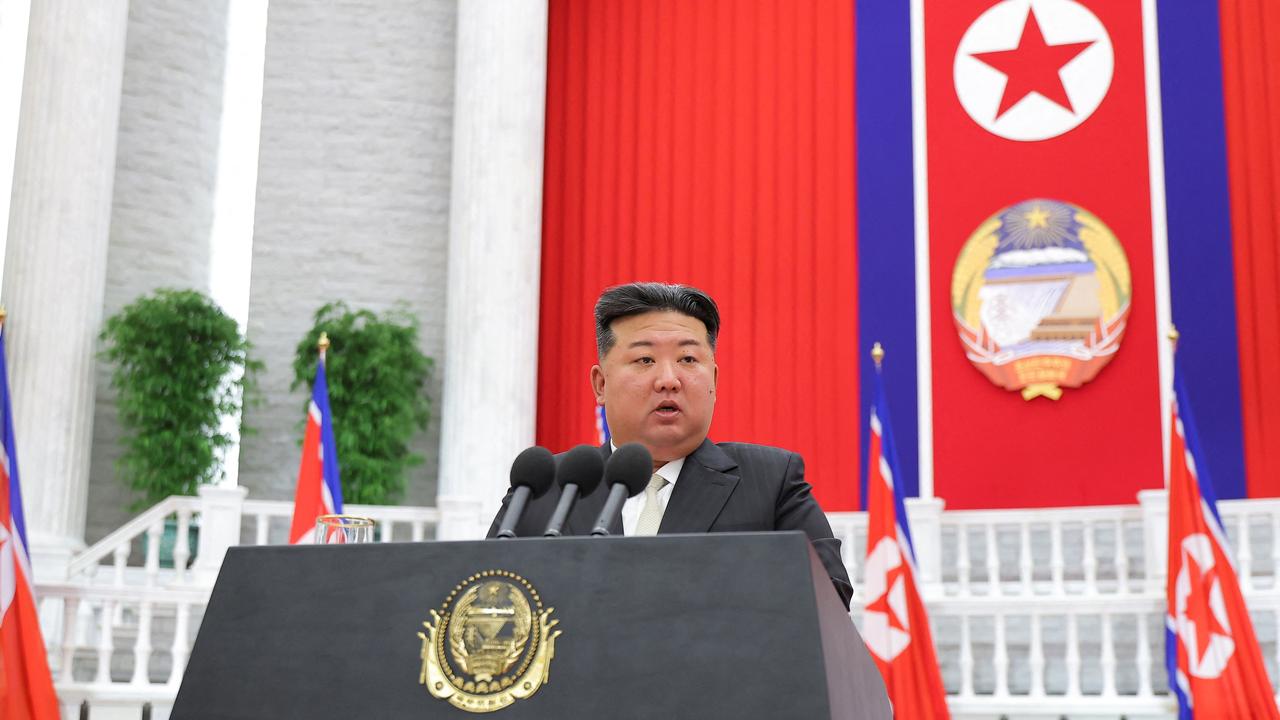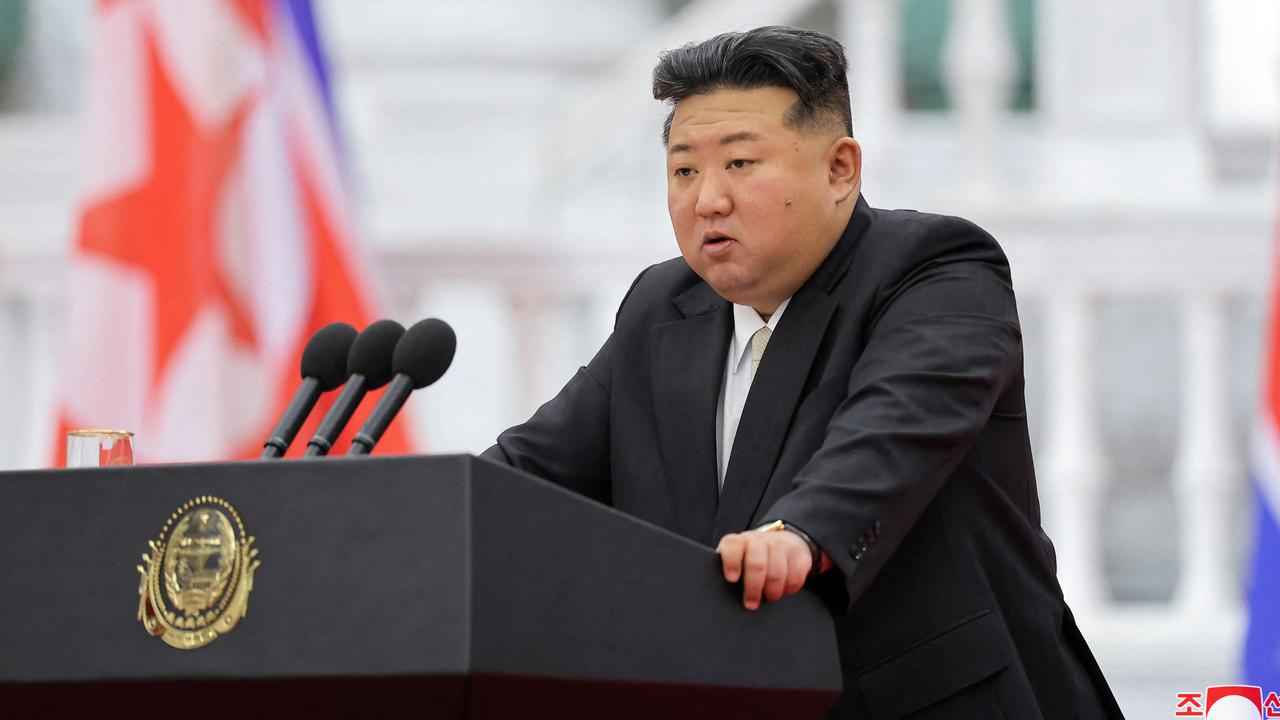North Korea vows to increase nuclear weapons arsenal
North Korean leader Kim Jong Un has made a chilling promise to increase the country’s nuclear arsenal, according to local reports.
North Korean leader Kim Jong Un said the country was moving to steadily increase its nuclear arsenal, state media reported Tuesday, claiming that Pyongyang was a “responsible” nuclear state.
Kim made a speech for an event to mark the 76th anniversary of the country’s founding, with state media images showing thousands of people gathering in central Pyongyang to celebrate.
Due to what Kim characterised as “more various threats” from the United States and its allies, North Korea’s “nuclear force” and its ability to deploy it “should be more thoroughly perfected”, he said.
North Korea “will steadily strengthen its nuclear force capable of fully coping with any threatening acts imposed by its nuclear-armed rival states”, Kim said.

The country will also “redouble its measures and efforts to make all the armed forces of the state, including the nuclear force, fully ready for combat”, he added.
Kim said Pyongyang was a “responsible nuclear weapons state”, adding that “our nuclear weapons for defending ourselves do not pose a threat to anyone”.
Kim’s speech comes as relations between North and South Korea are at one of their lowest points in years, with the North recently announcing the deployment of 250 ballistic missile launchers to its southern border.

North Korea has previously vowed an “exponential increase” in nuclear weaponry and routinely uses major state anniversaries as a chance to show off its purported prowess.
“After the 8th Party Congress in 2021, North Korea suggested the direction of diversification of nuclear weapons, especially tactical nuclear weapons,” Yang Uk, a research fellow at the Asan Institute for Policy Studies told AFP.
“From the end of the following year, they started to mention ‘exponential increases’,” Yang said.
“We believe that by 2027 North Korea can secure enough nuclear material for about 200 warheads and by 2030, this can reach 300,” Yang added.





